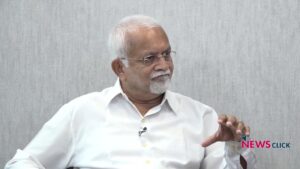EU Cracks A Gentle Whip At Iran
No Comments yetThe European Union has returned to the ritual of sanctioning Iran to leverage its foreign and security policies. The highlight of the EU Foreign Affairs Council ministerial meeting in Brussels on Monday was the imposition of sanctions against Iran over a range of issues.
The issues were “the unacceptable repression of the ongoing protests and the worsening human rights situation” in Iran, Iran’s military cooperation with Russia, including delivery of drones deployed against Ukraine, the prospects of renewal of the JCPOA as well as regional security.
The Council added 20 individuals and one entity to the EU’s existing Iran human rights sanctions regime plus four individuals and four entities for the development and delivery of drones used by Russia in Ukraine.
While imposing these sanctions, EU demands that those responsible for the killing of Mahsa Amini must be held accountable; Iranian authorities should ensure “transparent and credible investigations to clarify the number of deaths and arrests”, and release all non-violent protesters and provide due process to all detainees and lift restrictions on internet access and unblock instant messaging platforms.
The EU Council threatened that it “will consider all the options at its disposal” to address the situation arising out of the death of Mahsa Amini and the way Iranian security forces handled the demonstrations.
Those sanctioned include top executives of Iran Broadcasting, “which is notorious for being a regime mouthpiece,” Iran’s Deputy Minister of Interior and some IRGC commanders. Equally, Gen. Hamid Vahedi, Iran’s chief of air force, has been put on sanctions list for Iran’s “military support” for Russia’s war in Ukraine.
Ironically, while the EU Council meeting charged ahead on Iran sanctions, it failed to reach consensus on the expected 9th sanctions package on Russia, “against the Kremlin, for escalating its aggression against Ukraine.” Borrell said the Council of Ministers could not agree “to react to the latest escalation,” but he expected an approval of the new tough package during this week.
On the whole, Borrell was in a mellowed mood, though, claiming that the EU is making a careful distinction between punishing Iran on its human rights record and military support to Russia and the Iranian nuclear program.
As he put it, “You will understand that, in this situation the JCPOA is in a very difficult situation. But I think that we do not have a better option than the JCPOA to ensure that Iran does not develop nuclear weapons. This remains in our own interest.”
Borrell disclosed that he talks “quite often” with Iran’s foreign minister and “We share, we disagree, but, at least, we talk to each other. I think that diplomacy is here to keep the channels of communication open in any circumstances. I think that it was good that, before the Council took this [sanctions] decision today, I could inform the Minister and he could explain [to] me what is happening and I explain [to] him my concerns. And these concerns brought to these decisions.”
Borrell said: “I want to make a clear difference between the nuclear deal… and the decision taken by the Foreign Affairs Council on the issue of human rights and supply of arms to Russia. They are two different things.
“Certainly, this does not create the best atmosphere to advance in any kind of issue in the relationship between the European Union and Iran. But the nuclear deal is not an issue of the relationship between the European Union and Iran: it is something that goes further, many others are involved. The JCPOA is not just the European Union and Iran.”
Unsurprisingly, Tehran has hit back by announcing its own sanctions on several EU and British officials and entities “over their deliberate support of terrorism and terrorist groups, and their incitement to terrorism, violence and hatred, which have caused unrest, violence, terrorist acts and violation of human rights against the Iranian nation.”
Looking ahead, the big question is whether Tehran accepts the “Borrell way” of selective engagement—even if he took his Iranian counterpart into confidence. The EU will selectively engage with Tehran on the JCPOA because it is in the interests of the collective West, especially the Biden Administration, which would like the door to be kept open to resume the negotiations with Iran in Vienna that were suspended in August.
The energy crisis in Europe is a compelling factor here. Nonetheless, the EU probably also shares the Biden Administration’s estimation that the current disturbances in Iran cannot be easily suppressed. On the other hand, Tehran cannot be expected to compromise on any perceived challenge to the regime.
Also, the EU may have acted excessively by sanctioning Imam Sayyid Ahmad Khatami, a senior cleric and influential conservative and principalist politician who also happens to be a member of the powerful Guardian Council as well as the Assembly of Experts, who was appointed by Supreme Leader Ayatollah Ali Khamenei as Tehran’s “substitute” Friday prayer leader in 2005, a position he holds ever since.
In the final analysis, the trail of linkages outlined by Borrell ultimately leads to Moscow. Basically, the EU is messaging that JCPOA (lifting of western sanctions) will be conditional on Iran’s willingness to roll back its deepening ties with Russia.
The drone part is only the tip of the iceberg; what really causes uneasiness in Washington and Brussels is that Russia may borrow from Iran’s toolbox to undercut western sanctions. Iran’s geography as well as its geopolitics makes it a unique partner for Russia today. (See my article U.S. internationalizes Iran’s unrest, Asia Times)
Tehran is unlikely to budge on its firm handling of the unrest in the country. Indeed, there is remarkable consistency in Iran’s political history through the past 4 decades that there can be no compromises on the challenges to the fundamentals of the Islamic regime that came into existence through the Islamic Revolution of 1979. Clearly, the western powers are barking up the wrong tree—knowingly or unknowingly.
The defiant remarks of the Commander-in-Chief of the Islamic Revolution Guards Corps Major General Hossein Salami recently—the stark warning by the general that Iran today has “achieved all the military technologies in the world”—should leave the Biden Administration in no doubt.
That said, on the resumption of the JCPOA talks with the United States, Tehran remains interested.
You May Also Like
Comments
Leave a Reply








